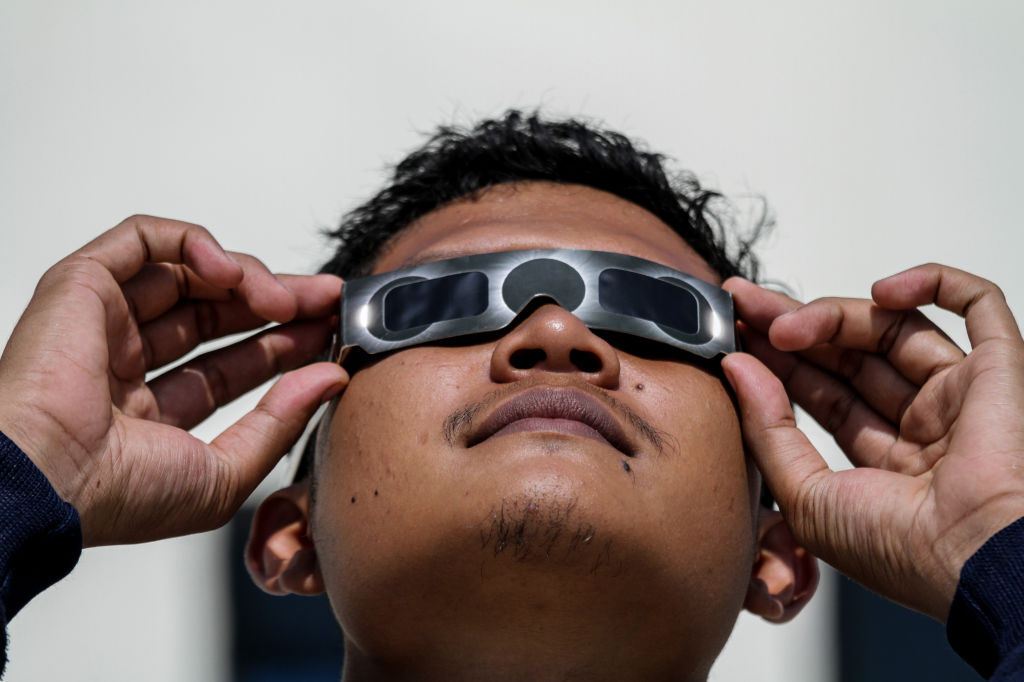
April 5, 2024
New York Inmates Allowed To See The Upcoming Eclipse Following Lawsuit Win
The next solar eclipse, which can be viewed in the U.S., won't be until 2044.
A group of inmates in New York will be able to marvel at the eclipse like the rest of the nation after winning a lawsuit against the New York State Department of Corrections and Community Supervision.
Filed on Mar. 29 in federal court in upstate New York, the suit argued Woodbourne Correctional Facility violated the inmates’ constitutional rights to practice their faith after deciding to classify the eclipse as a holiday. Holidays at prisons mean inmates will be required to stay in their cells from 2 p.m. until 5 p.m. – the usual time when inmates would be scheduled for outdoor activity – unless an emergency arises.
One of six plaintiffs, Jeremy Zielinski, identifies as an atheist and argues that seeing the solar eclipse is a “rare, natural phenomenon with great religious significance to many.”
The suit highlighted the religious significance of a solar eclipse in comparison to similar instances in the Bible during Jesus’s crucifixion and Islamic texts describing the death of the Prophet Muhammad’s son.
Zielinski and the other plaintiffs, with varying religious backgrounds, reached a “favorable settlement of the matter” with the corrections department on Apr. 4.
The corrections department alleged it had already begun reviewing religious requests to view the eclipse, including those of the six inmates named in the suit, before legal documents were filed. “We continued our analysis and review during the pendency of the lawsuit,” the department said.
“The Department has agreed to permit the six individuals to view the eclipse.”
The lawyers in the case – Chris McArdle, Sharon Steinerman, and Madeline Byrd of Alston & Bird – released a statement saying they are pleased with the outcome of the case.
“We are pleased that, in response to our lawsuit alleging religious discrimination, New York State has entered into a binding settlement agreement that will allow our six clients to view the solar eclipse in accordance with their sincerely held religious beliefs,” the group said, according to NBC News.
The rare phenomenon, where the moon will obscure the sun, is scheduled to take place on Apr. 8. It will be the first solar eclipse visible in the United States since August 2017. For the 32 million people living in the eclipse path, the sky will become completely dark for 4 minutes and 28 seconds. According to NASA’s “Eclipse Explorer” website, Woodbourne is not on the path to the total eclipse. However, the moon will mainly cover the sun around 3:25 p.m.
The next solar eclipse, which can be viewed in the U.S., won’t be until 2044.